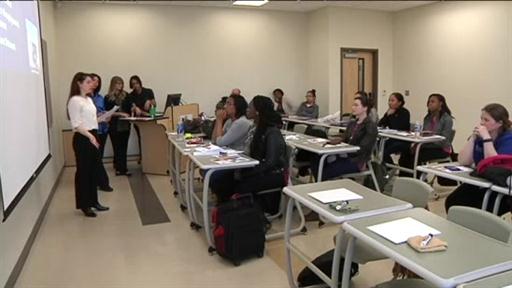RALEIGH -- More healthcare employers are starting to require nurses to have four-year bachelor degrees instead of two-year associate degrees.
It's part of a national effort to raise the education standards for nursing by the year 2020.
“The market has changed,” said Dr. Stephen Scott, President of Wake Tech Community College and a member of the Task Force on the Future of Community College Nursing Education. “The bachelor's degree in nursing, or BSN, is now the entry-level required credential. It has moved from an associate degree in nursing to a Bachelor of Science degree in nursing.”
But North Carolina is one of 26 states where community colleges don't offer bachelor degrees, just associate degrees.
So community college and nursing leaders are working together on the task force to help streamline the process for students to reach that higher level of education.
“The community college has always provided access and affordability and those are the major tenants of the values of the community college system here in North Carolina,” explained Dr. Mary Rittling, President of Davidson County Community College and co-chair of the task force.
Just two weeks ago, the State Board of Community Colleges reached an agreement with the UNC System to create uniform course requirements for students starting their nursing degree at a community college and then transferring to a public university.
“How do you provide this instruction at a time, a place, and a cost that is best for the student, best for the employer, and best for the taxpayer,” Scott questioned. “My opinion, the community college is the best place to do that.”
The task force is considering the possibility of creating competency based education programs, where experienced nurses can earn course credits by demonstrating knowledge of the subject matter.
They’re also considering allowing North Carolina community colleges to offer four-year Bachelor of Science Nursing programs, like 24 other states.
The task force is expected to provide a final report, with recommendations, to the State Board of Community Colleges soon.
Education leaders say whatever recommendations are approved will take at least 18 months to implement.

